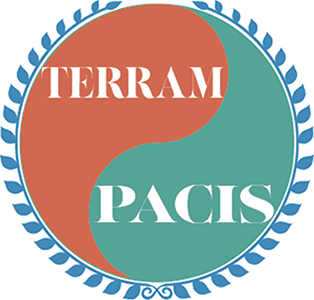

For a healthier EU, promoting good health is an integral part of Europe 2020, the EU's 10-year economic-growth strategy. That is, health policy is important to Europe 2020's objectives for smart and inclusive growth because keeping people informed, healthy, and active has a positive impact on the future of the EU. There is growing evidence that health and literacy are closely linked, and thus, influence other parameters such as poverty, inequality, discrimination, power relations, and income levels. Health Literacy is thus a strategy to contribute to the improvement of community’s health, participation, and well-being where health is the basic human right that guarantees people autonomy and responsibility for their own health, and well-being. Despite its immense benefits, health literacy remains a challenge for European public health. Research findings show that more than a third of the EU population face difficulties in finding, understanding, evaluating, and using information to manage their health, especially on sexual and mental health. According to WHO, health education interventions have a formative character, since they manage to integrate cognitive and attitudinal processes that allow behaviour modification, and become a conscious, rational and voluntary action.
While health literacy refers to the skills and knowledge of individuals necessary to access, understand, evaluate and use health information, enabling them to make health care decisions, disease prevention, and means for healthy living. Hence, the first objective of Youth Health literacy is to contribute to achieving youth’s social, physical, sexual, and mental well-being. That is, at first level the project seeks to strengthen the capacity within the consortium to integrate an Impact Pathway, Participatory Action Research, and Human Rights-Based Approach to formally identify specific type of knowledge, behaviours, attitudes, and skills that contribute to health literacy as means to facilitate youth to achieve an adequate state of social, physical, sexual, and mental well-being. This is an important area of inquiry because it not only helps identify which health literacy tools, habits, and skills that are relevant for youth, but it further reveals: (a). What healthy well-being is, what behaviours lead to it, and what knowledge, skills, and attitudes support those behaviours? And (b). How is health literacy knowledge and awareness translated into healthy behaviours and healthy lifestyles that lead to a greater social, physical, sexual, and mental well-being?
Whereas, the second objective of Youth Health literacy is to develop Open Education Resources for youth workers and youth organisations as a means to facilitate youth empowerment to achieve an adequate state of social, physical, sexual, and mental well-being. Hence, the second level of the project seeks to strengthen young people's capacity: (1). Facilitate youth become aware of health problems that may affect them; (2). Facilitate youth in acquiring an understanding of those health problems, their consequences and how they can deal with them; (3). Facilitate youth to acquire the skills needed to address physical, sexual, and mental health problems; (4). Advocate for youth health policy that value systems that include a strong interest in health and motivation to actively participate in protecting and improving the quality of health; and (5). Facilitate youth to develop a sense of responsibility and urgency to ensure that appropriate action is taken to solve sexual and mental health problems. To meet this second objective, the consortium seeks to develop a set of 5 Intellectual Outputs: IO1. Youth health literacy; IO2. Mental health and young people; IO3. Drug abuse and youth wellbeing; IO4. Gender, Sexuality, Sexual health and hygiene; IO5. Digital-based youth-friendly health services.
We seek to create a partnership aiming to strengthen partners’ capacity to develop a youth work that can meet the health literacy needs of our targeted groups by Inclusion and Diversity; using approaches that offer potential for reaching out to and engaging targeted groups. From our previous collaborations, we came to the conclusion that our efforts are falling short on these aspects, and thus fail in meeting the needs of our targeted groups in a long-term perspective. Though our work focused a lot on needs assessment among targeted groups, it left no room for impact measurement to see whether social change is happening or not. To meet those needs, both the consortium and our targeted groups will benefit enormously from applying Impact Pathway, Participatory Action Research, and Human Rights-Based Approaches in the project implementation. The partners will meet their needs by strengthening their capacities through research, experiential learning, and sharing good practices on how programming a Youth Health Literacy Intervention must be rights-based; youth and their right to health must be at the centre of such an intervention.
So, the first stage of the project places emphasis on the purposes of the project’s Intellectual Outputs by an application of a theory of change and key human rights principles of equal rights, equal opportunities, and non-discrimination by cooperating with youth and youth communities at the local levels. The second stage places emphasis on an inclusive and diverse participatory process to identify and analyse the health problems of youth belonging to groups that often experience discrimination or inequalities while seeking health services, such as youth with disabilities, LGBTIQ youth, and youth in racial minority groups. Our participatory approach enables youth to acquire skills that enable them to make appropriate use of health information; be aware of the severity of public health situations; and understand how to protect themselves, and others, through basic actions. This is the state of being wherein, a person (a). has control over day-to-today health; (b). has the capacity to assess a risk to health and mitigate poor, risky health decisions; (c). has the capacity to track and meet their healthy behaviours and healthy lifestyles goals; and (d). has the freedom to make the choices that allow them to enjoy life.